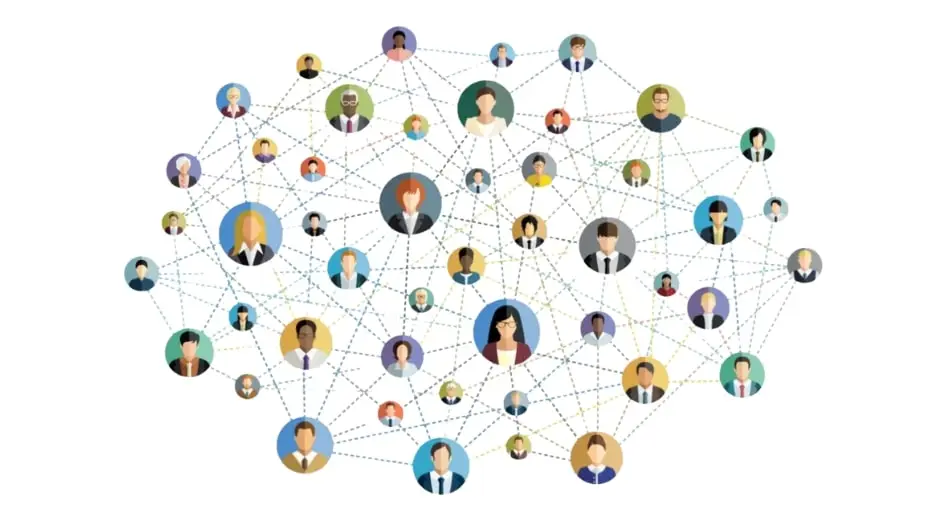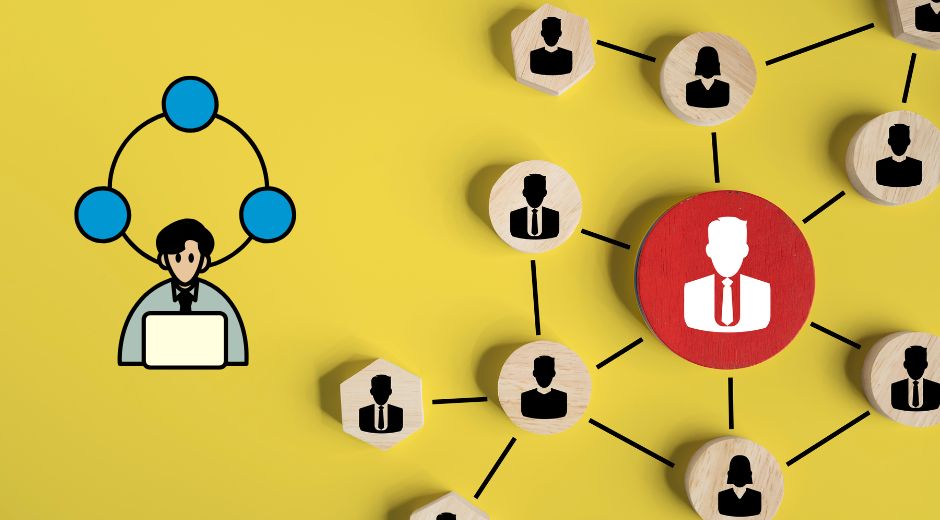Collaborative Mindset: Redefining the Power of Modern Networking
Networking has evolved far beyond exchanging business cards or growing follower counts. In today’s interconnected world, real success depends on developing a collaborative mindset. It’s the foundation of meaningful relationships, shared innovation, and long-term growth.
Instead of focusing on personal gain, the modern professional thrives through partnership. Collaboration creates synergy—where ideas, resources, and expertise flow freely between individuals and organizations.
A collaborative mindset transforms networking from competition into cooperation, unlocking opportunities that no one could achieve alone.
What is a Collaborative Mindset?
A collaborative mindset means approaching connections with generosity and openness. It’s the belief that progress is faster when people work together instead of trying to outshine one another.
In professional settings, collaboration encourages dialogue over dominance and curiosity over ego. It helps individuals see networking as a shared journey of mutual value rather than a one-time transaction.
When everyone brings their strengths to the table, ideas evolve faster and networks grow stronger.
Why Collaboration Outperforms Competition
In the past, many professionals viewed networking as a race to climb higher. But competition often isolates. Collaboration, on the other hand, builds bridges.
When leaders adopt a collaborative mindset, they tap into a larger pool of creativity and problem-solving potential. Partnerships create access to new markets, audiences, and skill sets that would otherwise remain out of reach.
According to Forbes, teams and organizations that foster collaborative cultures are five times more likely to achieve high performance compared to competitive ones. The future belongs to those who connect, not compete.
Building Trust Through Authentic Collaboration
Trust is the cornerstone of collaboration. Without it, no partnership can thrive. Professionals who cultivate a collaborative mindset prioritize transparency, communication, and accountability.
True collaboration isn’t about convenience—it’s about commitment. When people feel heard and valued, they contribute their best work. This mutual respect deepens professional relationships and strengthens entire networks.
Authenticity builds influence faster than any strategy because people are drawn to those who uplift others.
How to Develop a Collaborative Mindset
Building a collaborative approach doesn’t happen overnight. It requires self-awareness, patience, and genuine interest in others’ success. Here are four ways to begin:
-
Listen to Understand: Instead of waiting to speak, focus on truly hearing others’ perspectives.
-
Share Knowledge Freely: Collaboration thrives on the open exchange of ideas.
-
Celebrate Collective Wins: Success shared by all strengthens community bonds.
-
Stay Curious: Ask questions and stay open to learning from people with different experiences.
These habits slowly shift the focus from self-promotion to shared achievement.
Collaboration in the Digital Era
The rise of virtual networking has expanded how professionals collaborate. Digital platforms make it easier to build communities around ideas, not just industries.
From online forums to remote projects, digital collaboration fosters inclusivity and diversity of thought. Tools like Slack, LinkedIn Groups, and Notion enable cross-border cooperation that redefines teamwork.
To learn more about how digital collaboration shapes modern business relationships, visit Entrepreneur—a trusted source for insights on leadership and networking.
The Role of Reciprocity in Modern Networking
Networking without reciprocity rarely lasts. When you help others succeed, your influence naturally expands. Reciprocity turns professional relationships into partnerships.
Those who give more—advice, introductions, or opportunities—often receive more in return. This principle of “give to grow” lies at the center of every successful network built on a collaborative mindset.
On BusinessForumHub, experts emphasize that collaboration amplifies visibility while deepening credibility. People remember generosity longer than self-interest.
The Power of Community and Shared Growth
Communities built on collaboration tend to flourish because they harness collective intelligence. Whether through co-working initiatives, innovation hubs, or online mastermind groups, shared effort drives exponential results.
When one person rises, the whole community benefits. That’s the true strength of networking with a collaborative mindset.
If you want to explore modern case studies on joint ventures, creative partnerships, and industry collaborations, check Politicxy, where professionals share real experiences of growth through unity.
Overcoming Barriers to Collaboration
Even with good intentions, barriers can appear—ego, fear of idea theft, or lack of trust. Overcoming these requires open communication and defined goals.
Clarity and shared values ensure that collaboration stays productive. By setting boundaries and respecting roles, partnerships remain strong and mutually beneficial.
Remember, collaboration isn’t about merging identities—it’s about enhancing one another’s strengths.
Final Thoughts
A collaborative mindset represents the future of networking. It transforms individual ambition into collective achievement and shifts the focus from short-term results to long-term impact.
When professionals connect through trust, empathy, and shared purpose, they create a network that thrives beyond borders and industries.
In modern business, success is no longer about standing alone—it’s about standing together.
To ensure continued value, ecosystems must be evaluated using both qualitative and quantitative metrics:
Innovation Output: Number of new products, patents, or collaborative initiatives.
Market Growth: Expansion into new geographies or customer segments.
Partner Engagement: Participation levels, contribution quality, and collaboration frequency.
Financial Impact: Revenue growth, cost savings, or shared investment returns.
Regular assessment enables participants to refine strategies, strengthen relationships, and optimize the ecosystem for maximum benefit.
Simple Entrepreneurship

Cash Management Habits Every Growing Business Needs
Cash Management Habits Every Growing Business Needs

Process Automation Tools That Save Time and Reduce Errors
Process Automation Tools That Save Time and Reduce Errors

How Team Culture Drives Long Term Business Success
How Team Culture Drives Long Term Business Success

Cost Control Methods That Improve Profit Without Cutting Growth
Cost Control Methods That Improve Profit Without Cutting Growth

Decision Making Skills That Separate Great Leaders From Average Ones
Decision Making Skills That Separate Great Leaders From Average Ones













